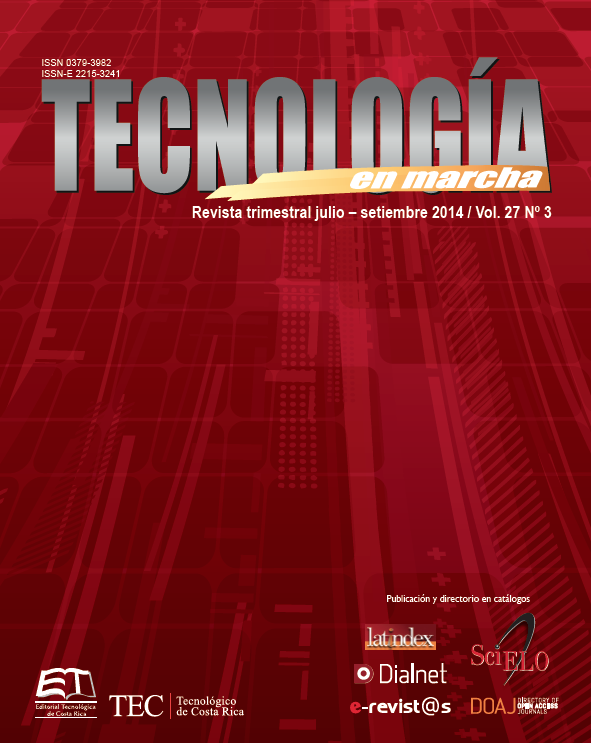Implementation of the methodology DMAIC-Six Sigma in packaging of liquor in Fanal
Main Article Content
Abstract
This article discusses the proposal for improvement of efficiency in pet packaging line in fanal using six sigma dmaic methodology. The work was done in order to solve the problem presented packaging line pet bottle liquor, which was not operating at full capacity due to deficiencies in the line. During diagnosis of the situation, it was determined that in the packaging line pet liquor is effective times had very low production, excessive line stoppages, each thread machines not at any time reach their full potential production, quality defects in recurrent, repetitive and exhausting process by staff, there is no ability to cope with peaks in times of high demand, among others. Some solutions are proposed as measure and monitor the efficiency of each machine in the line with an effective indicator as OEE, downtime mandatory control so that the process smoother and expeditious, automate some threads on the line so that operators do not have to do work that a machine can do easily and at less cost. In short with the improvement achieved through six sigma dmaic methodology in line pet liquor packaging of fanal, it fails to pass an OEE of 47% at baseline to 80% OEE at the end of the improvements implemented (staff training and line maintenance, and the creation of the maintenance plan), which offers a comprehensive solution to the problem presented and to cover demand in the selling period, and allows reducing downtime the process and greater resource utilization installed and human resources involved, in a way that is optimized for maximum performance capacity of the production line, generating annual revenues greater.
Article Details
Los autores conservan los derechos de autor y ceden a la revista el derecho de la primera publicación y pueda editarlo, reproducirlo, distribuirlo, exhibirlo y comunicarlo en el país y en el extranjero mediante medios impresos y electrónicos. Asimismo, asumen el compromiso sobre cualquier litigio o reclamación relacionada con derechos de propiedad intelectual, exonerando de responsabilidad a la Editorial Tecnológica de Costa Rica. Además, se establece que los autores pueden realizar otros acuerdos contractuales independientes y adicionales para la distribución no exclusiva de la versión del artículo publicado en esta revista (p. ej., incluirlo en un repositorio institucional o publicarlo en un libro) siempre que indiquen claramente que el trabajo se publicó por primera vez en esta revista.

